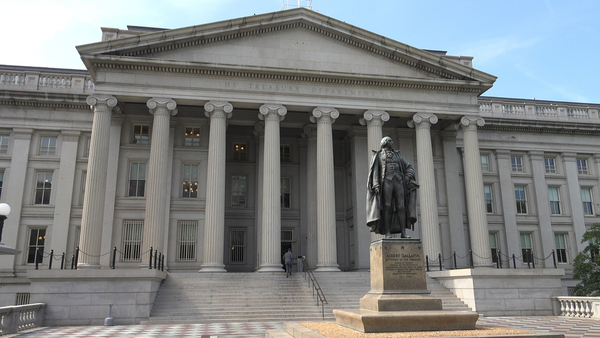
The estimated 10-year cost of the credit union tax exemption jumped a whopping 32.3% over a year ago, according to the Trump Administration budget released Tuesday.
The administration’s budget offered no explanation for the jump from $26.75 billion in Fiscal 2017 to $35.31 billion in Fiscal 2018. The Office of Management and Budget, which prepared the administration’s budget, did not respond to a request for comment.
Comparing the two previous years—2017 and 2016—the increase was about 5.4% in President Obama’s budgets.
The new figure could make the credit union tax exemption more attractive to policymakers looking to pay for tax cuts.
Budget analysts have criticized the Trump budget’s economic assumptions, calling them wildly unrealistic. The budget calls for huge cuts in domestic programs, including the elimination of the Community Development Financial Institutions program.
In its budget, the administration said it plans to examine all tax expenditures for their effectiveness; the credit union tax exemption is considered a tax expenditure.
“These expenditure amounts vary from year to year, and there isn’t any proposal in this budget to change credit unions’ tax-exempt status,” said Carrie Hunt, NAFCU’s Executive Vice President of Government Affairs and General Counsel.
The Trump estimate may have used the figure found in a Treasury Department 2016 report, which estimated the cost of the tax exemption at $35.3 billion, said Ryan Donovan, CUNA’s chief advocacy officer.
The budget document may have a higher profile than the Treasury report, but its estimates don’t take into account the benefits that tax exempt credit unions bring to the economy, he said.
“I’m really not that concerned about the number,” he added.
But John McKechnie, senior partner at Total Spectrum, called the jump between the two budget years “an eye-opener.”
“I have a great deal of optimism about credit union growth, but I am a bit suspicious that this number may have been juiced by those who constantly complain about unfair credit union competition,” he said.
Indeed, the Independent Community Bankers Association last week sent a statement to the House Ways and Means Committee, as the committee held a hearing on tax reform.
“Tax reform presents a once-in-a-generation opportunity to correct a historic injustice in the taxation of financial services providers,” the ICBA said. “Credit unions and FCS lenders are becoming the equivalent of banks and should be taxed equivalently. “
But Hunt countered, saying that the tax exemption helps the economy.
“We have an independent study that shows removing the credit union exemption would cost the federal government $38 billion in lost revenue over 10 years, shrink GDP $142 billion and kill off 900,000 jobs,” Hunt said. “Each of these outcomes is the direct opposite of what the administration is looking to accomplish: to fuel economic growth and jobs.”
Former NCUA Chairman Dennis Dollar said he doubts Congress would touch the credit union tax exemption as a way to raise revenue.
“The credit union tax exemption as a solution is like trying to empty the Pacific with a Dasani water bottle,” he said. “Are congressmen and senators willing to anger millions of credit union members for such a small amount of revenue against such a gargantuan deficit and debt? Politically, I don’t think it’s a winner.”


